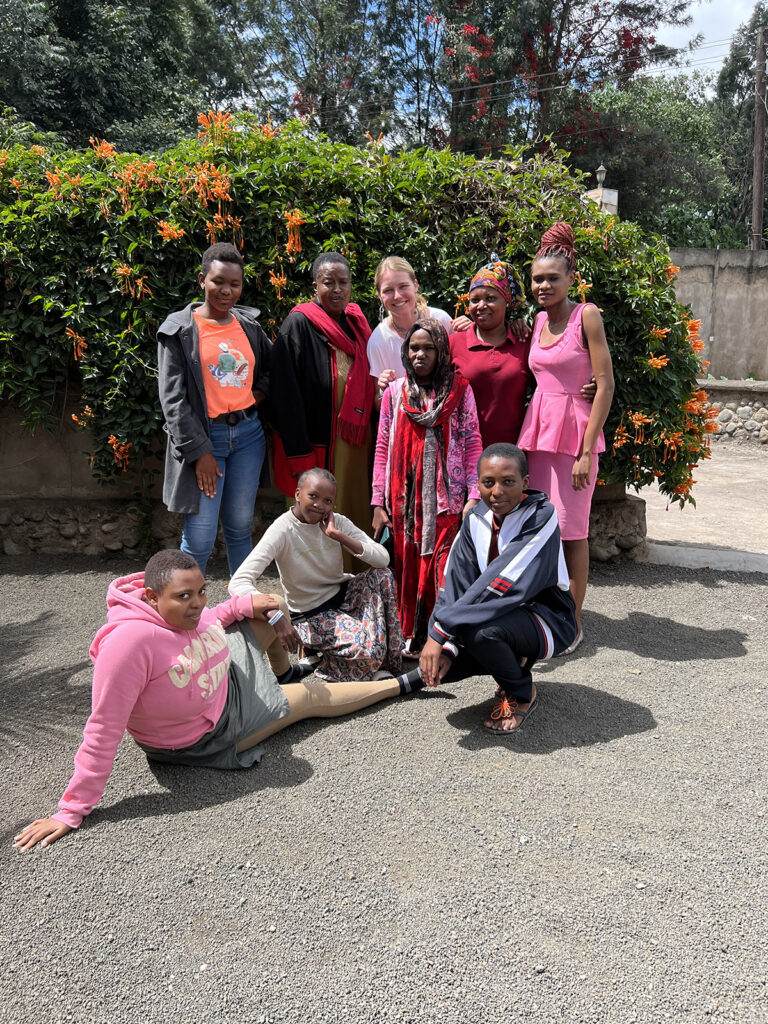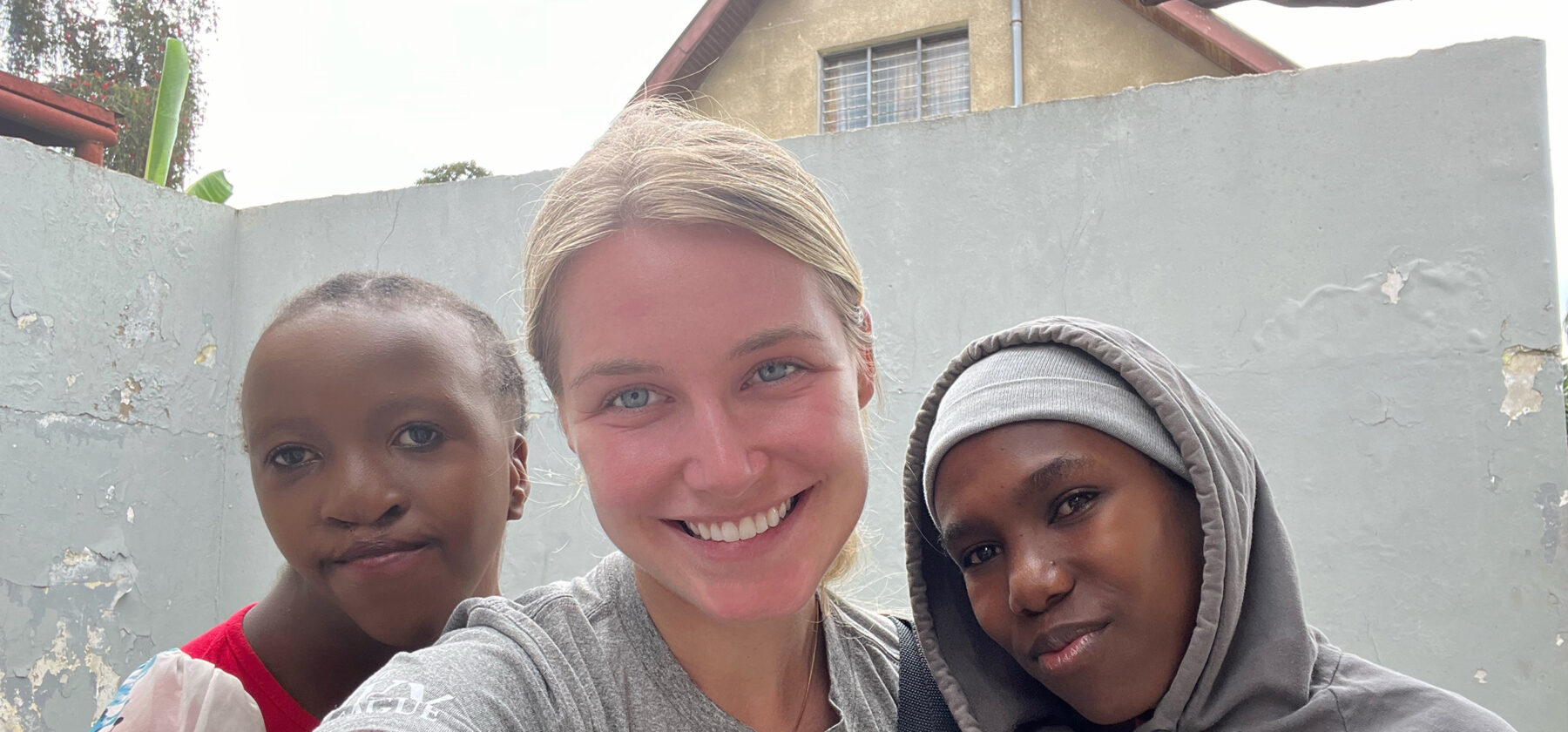Perfect Vision has roughly 10 members at a time who participate in the program 5 days a week for around a year, where they are provided a safe space and learn necessary skills to enable them to live independently. The skills-based-training includes entrepreneurial workshops, cooking, and tailoring. I arrived at Perfect Vision on my first day by taking the Dala Dala, the most popular form of local transportation in Arusha where people sit on top of each other!
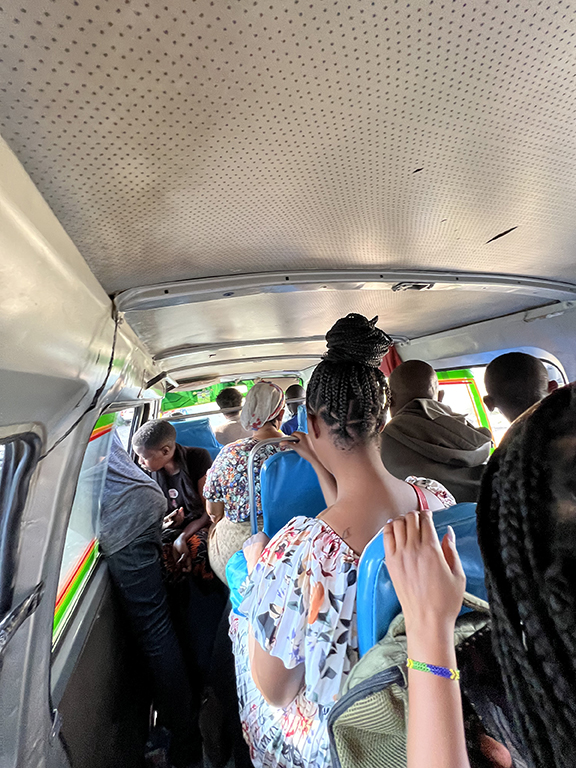
Connection through Language Exchange
While many of the women had very limited English, I was welcomed with open arms and a Tanzanian welcome song that we danced to. I could feel the genuine joy in the small room where Perfect Vision was located. After talking to the director of Perfect Vision, who was living out the dreams of her Mother who had started the organization but had recently passed away from HIV, I realized that my role and the skills I could share with the women were very flexible. There were not set boundaries, but instead more overall goals of confidence building, general education and upliftment. In this way, we started each day with English lessons where I did grammar work and sentence building and in return the women spent time teaching me the same in Swahili. Where they struggled with English, I also struggled in Swahili. This language swap brought much laughter between all of us and provided a sense of parity despite our differences. Drawing from the small seminar classes I have taken at Penn where class presentations and discussions are the focal point and encourage public speaking, I made sure that each woman would come up to the board to create practice sentences during our time practicing English. Despite the initial apprehension and awkwardness at the beginning, it was incredible to see how much more confident each woman became writing and speaking in front of everyone else when they were doing it on a daily basis. I learned from other volunteers who were working in schools that Tanzanian education in general is very traditional, where the teacher is at the front and the students sit quietly copying down what is written, so participation is limited and perhaps felt wrong initially for these women.
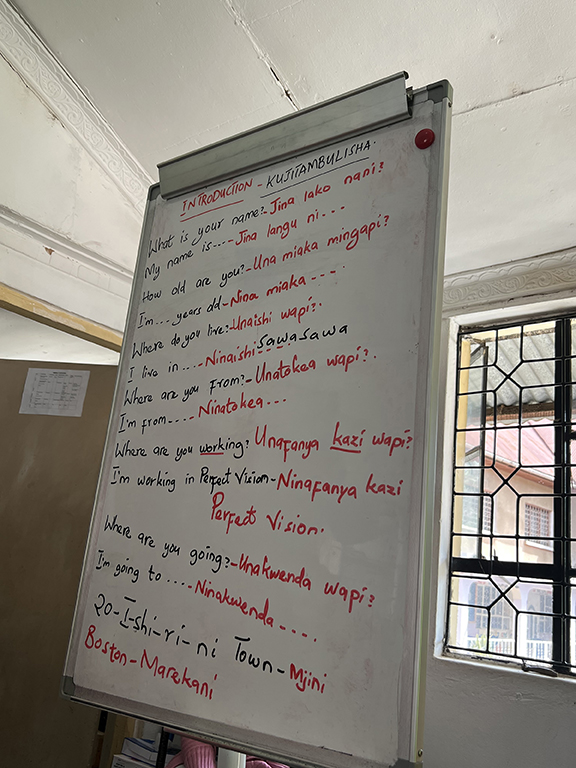
After the Swahili and English classes, I would begin the lesson I had planned for the day. I made sure to try and start each lesson with a wellness activity, often drawing from those I had the opportunity to practice with Dr. Howard this past semester in my Political Empathy and Deliberative Democracy class. Some of these activities included stretching, compliment writing to the other women in the room, self-affirmation and gratitude journaling. Small acts of kindness to ourselves and others seemed to create a palpable positive energy in the room.
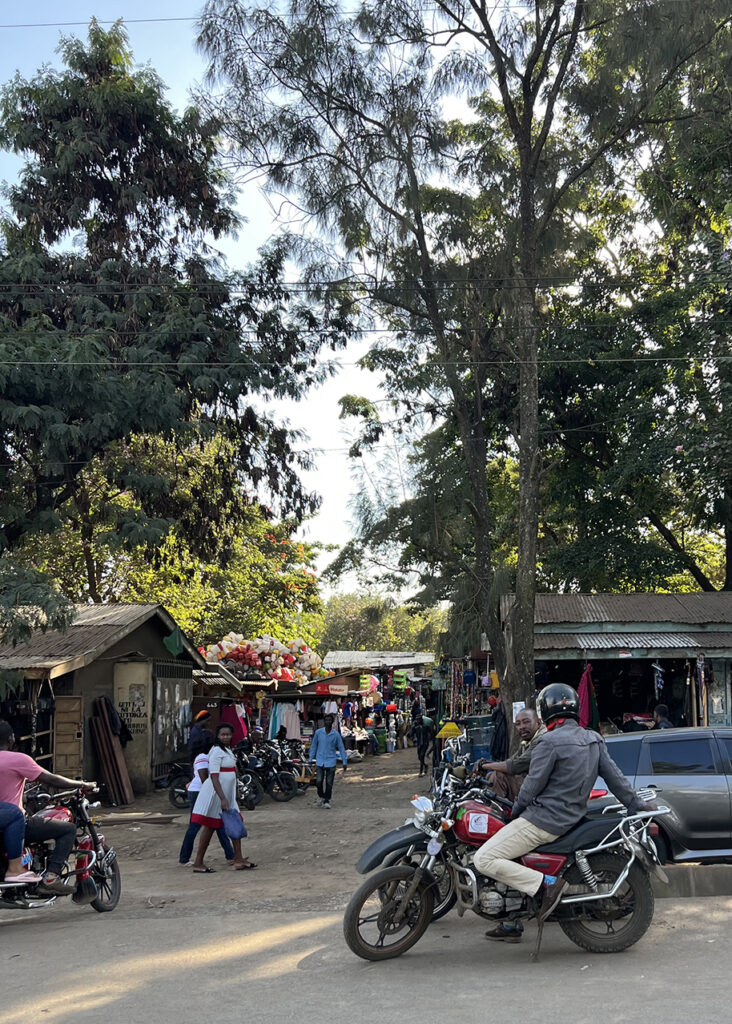
Women’s Rights in Tanzania
One of Perfect Visions main focuses is reproductive health, not only within the women who are a part of Perfect Vision, but also in greater Arusha. The Perfect Vision “Mamas” as they call themselves learn how to use a sewing machine to both make clothes and reusable menstrual pads that they deliver to the community. The Mamas explained to me how menstruation is a serious issue in Arusha, as many women do not have the resources to purchase any period products, so getting their period each month often forces them to stay home from any sort of work or involvement in their daily lives. This can be severely detrimental when many of these women face food and water insecurity. By delivering their sewn reusable pads that can be used for around a year if washed correctly, the Mamas promote reproductive health hygiene, de-stigmatization of menstruation and the resources to hopefully enable women to continue their daily lives.
Each of the women, who were between the ages of 18 and 27 approximately and one Mama who was in her late 50’s, each had one notebook for the work they had been doing the last number of months. While most of the women did not have any more than an elementary school education, their intense eager desire to learn anything and everything was incredibly inspiring. Some of my lessons included a basic introduction to economics, world geography, how to face fears, how to actively listen, how to write stories (both autobiographies and fiction), and the history of women’s rights in Tanzania and the world, to name a few. Some of the most striking conversations occurred during our discussions on women’s rights when I asked how the women had been treated differently in their lives because they were women. Various women spoke of how their Father’s had said they were useless to them because they were a woman and abandoned them, another woman shared how her cousin had promised he would put his baby up for adoption if it is a girl when his wife gives birth. When discussing overcoming fears, many women voiced how their biggest fear was that the many people who had told them they would not go anywhere in life would be right. Many also spoke of how their positive HIV diagnosis made them not only physically suffer but outcasted them from society due to a lack of education on the disease itself and how it spreads. It is horrifying how the repetition of this rhetoric in family life and communities can make women feel so small, undeserving, less than and limited in what their futures hold. However, I also recognized how important and powerful it was that Perfect Vision offered this safe space for them to confront and discuss these challenges. In these discussions we also briefly touched on the issue of female genital mutilation in Tanzania, a horrifying and illegal practice that has been widely addressed by the government in the last decade, but is still a serious issue among many Tanzanian tribes. However the strides made in awareness and community wide zero toleration prove that positive outcomes can be accomplished and provide hope for the future of women’s rights and HIV awareness in Tanzania.
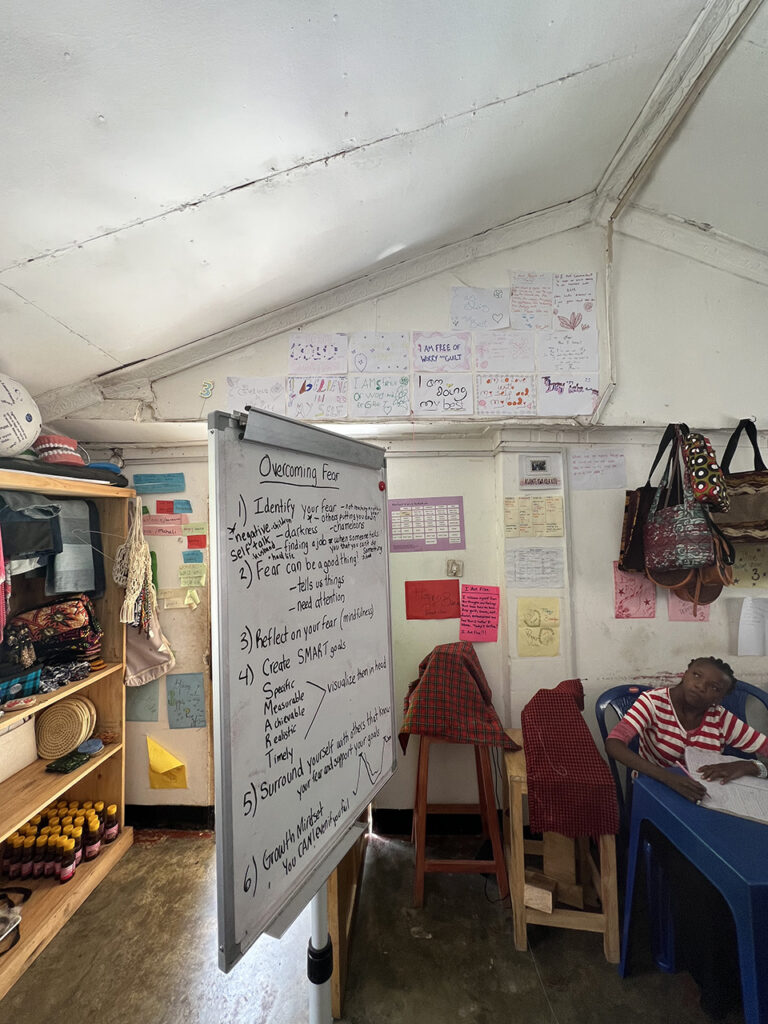
While I was apprehensive about how I could be of impact and develop relationships in the relatively short amount of time I had with the women, I was reminded day in and day out how infectious joy and encouragement can be. Perhaps these small interactions of positivity and light that we all shared can enable both the women and myself to have an extra bit of confidence, self belief, perspective and determination that will help us overcome hardships. While I am sad to have left Tanzania and Perfect Vision, I am excited to return to Penn with a renewed optimism in the power of education to open worlds, how light and hope can be found in even the darkest of situations, the necessity to continue fighting for women’s rights and equal treatment, and a keen desire to give back in any way I can both in my local and global community. Asante sana Tanzania.
